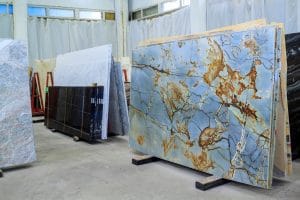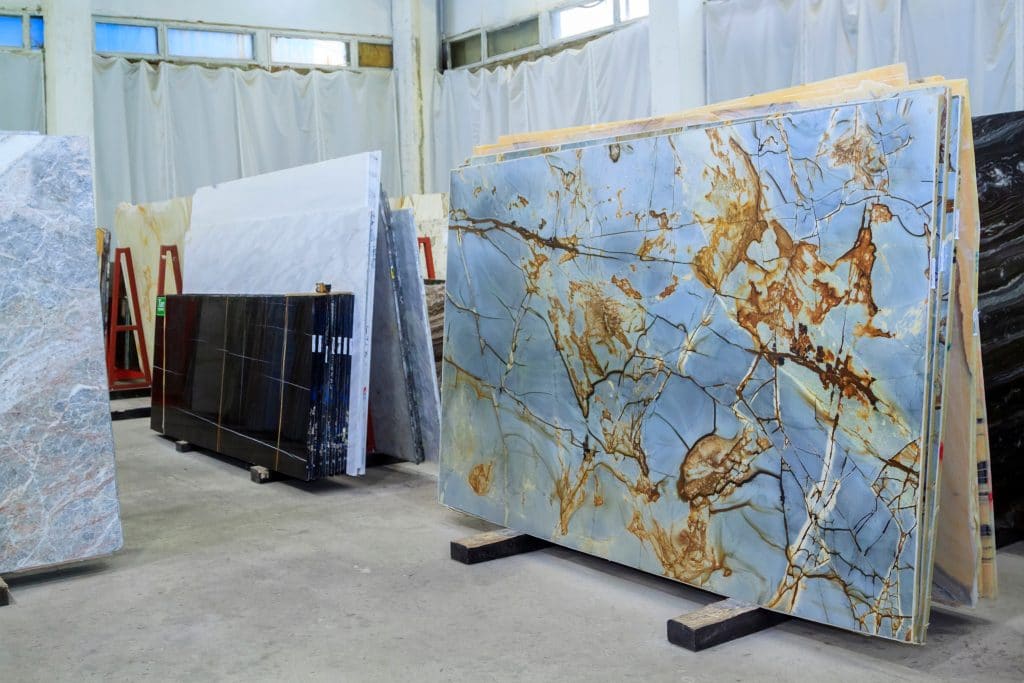
Quartz and quartzite are two distinct materials, despite popular belief. In fact, they are quite different and have various characteristics, particularly when it comes to their usage as kitchen countertops. Whether you’re most interested in durability, physical appearance, maintenance, or cost, here are a few things you should know before making your selection.
How Are Quartz and Quartzite Different During Formation?
The most significant difference between quartz and quartzite is related to how each is formed. Quartzite is a metamorphic rock that occurs naturally. It’s created when tectonic plate compression in the earth’s crust subjects sandstone to extreme heat and pressure. Similar to the process by which granite is quarried, quartzite is mined in large chunks and sawed into slabs which are eventually cut to fit countertop designs. In contrast, quartz countertops (also referred to as engineered countertops) are devised of about 90-93% loose quartz, silicon dioxide, and synthetic materials. These materials are all blended together with a binder and pigment before finally being shaped into countertops.
The Difference Between The Color of Quartzite and Quartz
Quartzite is generally white or gray in color. Quartzite mined from regions with a higher concentration of iron oxide in the stone might have pink or red hues, and yellow, blue, green, or orange pigments may appear if other minerals were compressed while the stone was forming. Quartzite is known for its unique streaking pattern. Quartz, on the other hand, can be produced in virtually any color due to pigment’s ability to be introduced while the material is being constructed. Its design is usually intended to resemble quartzite or granite’s naturally occurring streaks.
Are There Any Maintenance Or Durability Concerns With Quartzite Or Quartz?
In a comparison of hardness and durability, quartzite wins out over quartz. While quartz is extremely hard (more so than granite and most other synthetic countertops), the resin used in the Fabrication of quartz is prone to melting and/or discoloration in direct sunlight. However, quartz is more flexible than quartzite and is therefore less prone to denting or chipping. Quartz is renowned for being extremely low maintenance. It wipes clean with a damp cloth and is stain and bacteria resistant. Care for quartzite is a bit more involved — it must be sealed initially, then resealed every one to two years. When properly sealed, clean up is extremely easy; however, spilling on quartzite that hasn’t been sealed can result in stains or oil smudges.
Looking to purchase a Quartz or Quartzite Countertop? Browse our full stone slab inventory here, or get in touch with us here to learn more about our installation process for homeowners in West Virginia, Virginia, Maryland, or the Washington DC area.

